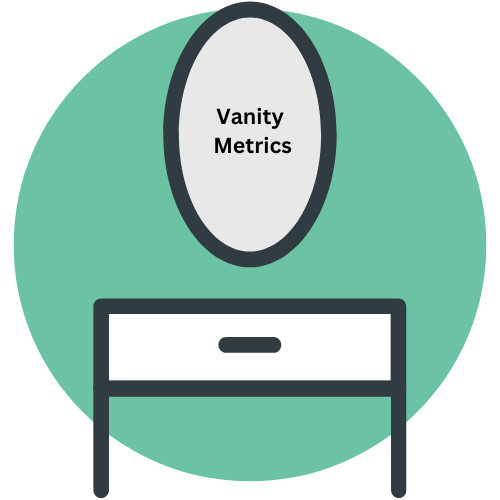3 min read
Stop Chasing Vanity Metrics in Sales: A Focus on Value-Driven KPIs
Stop Chasing Vanity Metrics in Sales: A Focus on Value-Driven KPIs by Lance Dowdell and Max Smith In the fast-paced world of sales, metrics are...
4 min read
.jpg) Nicholas Lamparelli
:
Mar 16, 2025 5:02:37 PM
Nicholas Lamparelli
:
Mar 16, 2025 5:02:37 PM

When I ask people what the opposite of fragile is, I usually hear "resilient", "strong", or "durable". This feels right, but isnt the right answer.
To know what the opposite of something is, you need to know what that something means. So what does "fragile" mean?

When faced with stress - fragile things break or get weaker.
The opposite would mean that when faced with stress, the object would get stronger! This is why durable, resilient or strong are not adequate enough to describe the word. Those terms just indicate that an object can withstand more stress before breaking, but not get even more strong.
Nicholas Nassim Taleb coined the term "anti-fragile" to specifically explain those situations where an object gets stronger from stress. He broke it down in his book Antifragile: Things That Gain from Disorder (highly recommended).
What are some things that are anti-fragile?
We see anti-fragility all around us.
 Our bodies are anti-fragile. Pick up a 20 pound weight and do 10 bicep curls. Do it again tomorrow and the day after, for several weeks and what happens?
Our bodies are anti-fragile. Pick up a 20 pound weight and do 10 bicep curls. Do it again tomorrow and the day after, for several weeks and what happens?
Your body adapts, adds more muscle, and you get stronger. After several weeks, the 20 pound weight is lighter and you can do more repetitions.
When stress hits your body - your body adapts (of course there is a threshold where the stress is just too much, and the body breaks - I am talking about a level of stress outside of the comfort zone equilibrium we are used to, but beneath the stress that will just snap or break the body).
We see it with allergens. Every time you are exposed to a disease, and you can live to tell the tale, your body is further prepared for that disease in the future. It is the basis of vaccines - give a mammal a small (and weakened) dose of a bacteria or virus, and the body's immune system will adapt to be able to fight that allergen in the future.
What about some examples outside of the body?
How about the airline industry? The airline industry Nick? Yes, the airline industry is anti-fragile. How?
Why are flying so safe? Are airplanes by nature safe vehicles?
Of course not. Airplanes are flying pieces of metal with complex engineering...lots can and do go wrong. So why is flying so safe? Because every time a plane crashes, we do a deep reconstruction of the crash, and those lessons are then engineered into future versions of plane or the system. Over time, the errors that existed prior just fade. Early 2025 has been notable for several dramatic crashes that made the news. In each instance, the deep reconstruction will determine the cause, and recommendations to avoid those mishaps going forward. It's a slow, and painful process, but it works and flying in a plane is magnitudes safer than driving a car (which should highlight the question of why we arent doing the same sort deep reconstruction for highway safety and will leave it up to the reader to understand why highway safety is getting worse)
If anti-fragility means things that get stronger with stress, how can we design sales and marketing strategies that do this? The answer lies with the airline industry.
For a sales and marketing strategy to be anti-fragile there needs to be a tight and corrective feedback loop between the stress (which would be all of the collective campaigns and information generated from both sales and marketing) to the deep reconstruction of what happened, when, how and what that means.
The key to creating anti-fragile sales and marketing systems lies in three core principles:
1. Systematic Data Collection
Just as airline crash investigations rely on black boxes and detailed records, your sales and marketing efforts need robust data collection. This means tracking not just successes, but especially the failures:
- Lost deals and their reasons
- Campaign metrics that underperformed
- Customer feedback (positive and negative)
- Sales conversation recordings
- Email open rates and engagement patterns
- Social media performance metrics
2. Deep Reconstruction Analysis
Like aviation investigators who piece together every detail of an incident, your team should regularly conduct "post-mortems" on both successes and failures:
- Monthly review sessions of lost opportunities
- Campaign performance deep-dives
- Customer journey mapping exercises
- Competitive analysis updates
- Voice of customer synthesis
3. Systematic Implementation of Learnings
The airline industry doesn't just study crashes – they implement mandatory changes across the entire system. Similarly, your sales and marketing process should have:
- Regular playbook updates
- Dynamic content adjustments
- Real-time messaging refinements
- Continuous training programs
- Automated feedback loops
But here's where it gets interesting: The more "stress" your system experiences, the stronger it becomes. Every rejected proposal, every unsuccessful campaign, every customer complaint becomes fuel for improvement. This is true anti-fragility in action.
Consider a practical example: Let's say your marketing team launches a new email campaign that performs poorly. In a fragile system, this would be seen as a failure and might lead to reduced email marketing efforts or a drastic change in direction. In an anti-fragile system, this "stress" triggers:
- Detailed analysis of open rates and click patterns
- A/B testing of alternative approaches
- Customer interviews about messaging preferences
- Sales team feedback on lead quality
- Integration of findings into future campaigns
The result? Each "failure" actually strengthens your overall marketing and sales ecosystem.
You learn and your messaging becomes more refined, your targeting more precise, and your conversion rates gradually improve.
The beauty of this approach is that it works in any market condition. Economic downturns? They become opportunities to refine value propositions. New competitors? They force innovation in your differentiation strategy. Market shifts? They drive adaptation and evolution of your offering.
The key is to build these feedback loops into your daily operations. Make them automatic, not optional. Every customer interaction, every sales call, every campaign metric should feed into your system of continuous improvement.
Remember: The goal isn't to avoid stress – it's to create systems that grow stronger from it. As with exercise, you dont want to break the system with too much stress. What is a stretch goal you've been meaning to pursue? Get outside your comfort zone...enough to learn and grow, but not too much to damage the overall system.

3 min read
Stop Chasing Vanity Metrics in Sales: A Focus on Value-Driven KPIs by Lance Dowdell and Max Smith In the fast-paced world of sales, metrics are...

6 min read
As an insurance industry leader, whether you run your own agency or MGA, are growing your insurtech, or are looking to capture market share from a...

4 min read
Eight Steps to Move Your Business Forward. by Ben Baker Photo by Andrea Piacquadio from Pexels Earlier this year Agency Nation wrote a...